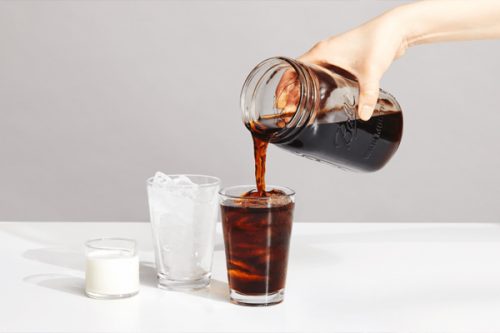Project Proposal (Chloe)

Project title
How does water chemistry affect the pH value of cold brewed and hot brewed coffee?
Introduction
Not all water is created equal. All natural water contains impurities, like dissolved minerals and bacteria, but the chemical makeup of tap water can vary wildly from country to country, even between cities of the same nation. Some tap water contain higher levels of chlorine due to its use by municipal water systems for water purification, while others may contain higher levels of sulfates due to the use of underground water. These impurities in water can affect the pH value of tap water significantly, and can have large impacts on the final taste and pH value of brewed coffee, as it may react to and enhance or dull certain flavours extracted from the coffee grounds during the brewing process.
Cold brewed coffee and hot brewed coffee use different methods to extract flavour from coffee grounds. While extractions at a lower temperature result in less acidic coffee, it also causes the overall flavour profile to be less full-bodied than its high temperature extraction counterpart. Using water that has additional minerals to increase its alkalinity to brew coffee may help to reduce acidity while preserving the flavour profile of the resulting coffee.
The 5Ws
Who?
Pang Ching I (Chloe)
What?
Investigate the effects of water chemistry on the pH value of both cold brewed and hot brewed coffee.
When?
From March to April
Where?
Home
Why?
To better understand the impact of the pH value of water used in coffee brewing on the resulting coffee, and compare the level of impact it has between cold brewed and hot brewed coffee.
How?
A batch of boiled tap water will have small amounts of Epsom salt and baking soda dissolved in it to increase its alkalinity. It will then be used to brew a batch of cold brew and hot brew respectively. Another batch of cold brew and hot brew coffee, brewed with plain boiled tap water, will be used as control. The resulting coffee will be tested for their pH values with the use of pH paper and blind tasting.
Variables
Independent variable
The pH value of the water used in coffee brewing
Dependent variable
pH value of the resulting coffee
Controlled variables
Amount of water used in brewing, amount of coffee grounds, size of coffee grounds
The Science Behind
Water is the medium through which the flavonoids in coffee grounds are extracts, so the chemistry of the water used in brewing can have a significant effect on the resulting flavour notes. Water that is more alkaline may be able to neutralize the unpleasant acid notes in under-extracted coffee, and some additional minerals like magnesium and calcium in the water may help in carrying the flavour compounds from inside the cellulose walls of coffee beans out during extraction.
The effect of alkaline water may be less apparent in cold brew than hot brew coffee, since the cool temperature and long extraction period does not oxidize the brew and release sour compounds as quickly as the high temperature and short extraction period in hot brew.
By Pang Ching I (3035696511)
References
Acidity and Antioxidant Activity of Cold Brew Coffee. NCBI.
https://www.ncbi.nlm.nih.gov/pmc/articles/PMC6207714/
Water for coffee extraction. Coffee Ad Astra.
https://coffeeadastra.com/2018/12/16/water-for-coffee-extraction/
What's Inside: Tap Water. Wired.
https://www.wired.com/2012/02/st_whatsinside_tapwater/
How Coffee Extraction Works. Clive Coffee.
https://clivecoffee.com/blogs/learn/how-coffee-extraction-works


Comments
Post a Comment